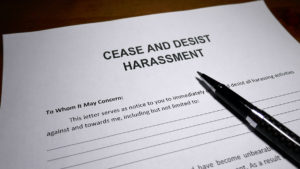
When you owe money to a debt collection agency, its employees have the right to contact you and try to recoup that debt.
But those rights only go so far. The federal Fair Debt Collection Practices Act regulates what debt collectors, or law firms acting as collectors, can do when contacting Pennsylvania consumers, and bars them from engaging in deception while trying to recover money that is owed.
In this blog post, we’re going to look at how federal debt collection laws help Pennsylvania consumers avoid harassment and threatening tactics used by collectors.
What do debt collection laws say about the way a collector may contact you?

Under the law, unless a collector has your consent they cannot contact you:
- Before 8 a.m. or after 9 p.m.
- At work if they know your employer disapproves of these calls
- After retaining an attorney to handle the debt
- At unusual times and places
- By cell phone without your permission
I’m being harassed by a debt collector. Am I protected by the law?
According to the Fair Debt Collection Practices Act, debt collectors are not allowed to “harass, oppress or abuse” you or use tactics such as:

- Obscene or profane language
- Threats of violence
- Repeated phone calls aimed to annoy you
- Threats of legal action or file a lawsuit on a time-barred debt.
- Continued collection efforts after writing them to stop.
- Speak with third parties, such as relatives, co-workers, friends or neighbors, and reveal information about the debt while trying to collect.
Debt collectors are also prohibited from using “unfair or unconscionable” practices to recoup a debt, including:

- Collecting more money than you actually owe, except in cases where such a collection is permitted by law, or is part of the agreement that created the debt
- Depositing a post-dated check early
- Placing private, personal information that is visible through, or on, a mailing envelope or package.
- Provide inaccurate or false information to the credit bureaus
How do debt collection laws prevent collectors from making false statements?
Debt collectors or collection law firms cannot make false or misleading statements when trying to collect a debt. This means they cannot:
- Falsely imply that documents sent to you are legal documents
- Falsely claim to be attorneys if they are not
- Imply that you’ve committed a crime
- Threaten you with a lawsuit when they can’t or have no actual plans to do so
- Misrepresent the collection agency as a credit bureau
- Misrepresent the amount of the debt or legal status of the debt
What if a debt collector won’t stop calling?

You can get a collector to stop placing calls to you by writing a Cease and Desist letter. Under the Fair Debt Collection Practices Act, the collector is then barred from contacting you. You should send this letter by Certified Mail Return Receipt for proof that your letter was received.
Each harassing phone call must be documented. Make notes that detail the abusive behavior, along with the date and time of the call, collector’s name and caller ID.
Legal Help from an Experienced Consumer Protection Law Firm
And at a certain point, you may need the services of an experienced consumer protection law firm to protect you from debt collection law violations.

Flitter Milz, a nationally recognized consumer protection law firm based in suburban Philadelphia, Pennsylvania, represents consumers nationwide, in cases for individuals and in class action lawsuits, who have become victim of debt collection law violations and a collector’s abusive practices. Learn more about how we can protect you against abusive collectors who violate debt collection laws in Pennsylvania.
Contact us for a free consultation to discuss calls and letters that have been sent to you from collection agencies or law firm collectors.







